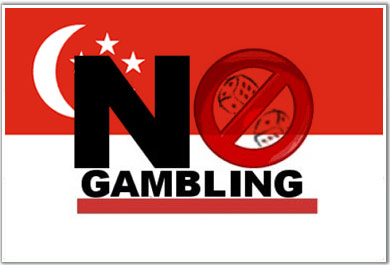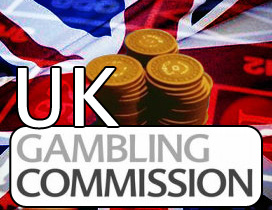Hartley gave us his Top 10 Gambling Stories of 2014: North America last week and today wraps-up last year around the world with the Top 5 Global Gambling Stories of 2014. Many global stories revolved around online gambling regulation and enforcement, as Asian and European countries defined online gambling laws, issued liceneses and went after 'illegal' operators and players. Though there are the five stories below, France, Japan and Spain also made headlines in 2014.

5. Germany announces the 20 sports betting licenses and pending appeals
Some clarity finally took form in Germany over its online gambling rules in 2014 when the country announced the 20 companies that could legally offer online sports betting. Most of the licensees were Austrian or German bookmakers although Electraworks Ltd (a subsidiary of Bwin.Party), Polco (a subsidiary of Betfair) and Ladbrokes were granted licenses. The most notable company not to receive a license was Bet365, which is the largest online bookmaker in the world. For those unfamiliar with the whole situation some history is in order.
In 2008 Germany passed the Interstate Treaty on Gambling Act which made all forms of online gambling, except horse racing and lotteries, illegal. Several European gambling companies appealed the new law to the courts claiming it violated EU rules, so in 2012 Germany decided to amend the law to allow sports betting as well, but only to a select number of companies as dictated by the Hesse Ministry of the Interior. In order to be considered for one of the sports betting licenses the country announced that interested parties had to go through a process, which most gambling companies described as confusing and the Ministry of the Interior decided that only 20 online gambling licenses would be granted. The winners had to agree to pay 5% of revenue to the country as a fee. Just prior to the amendment, one state, Schleswig-Holstein, saw an opportunity to benefit from the new rules, so in 2011 they decided to break away from the German treaty and announced that companies could apply for a license from them. Unlike the rest of Germany, casino and poker companies were allowed to apply for licenses and there was no limit to the number of licenses issued. Companies that won the license agreement from there had to agree to pay 20% of gross profits to the state (which was far more appealing than 5% of revenues) and  Schleswig-Holstein granted licenses to various companies in 2011 including Bet365. The licenses were to last for 6 years. After a lot of infighting Schleswig-Holstein backed down and fell in line with the Interstate Treaty on Gambling but the question remained as to whether the new federal law overrode the licenses passed by Schleswig-Holstein.
Schleswig-Holstein granted licenses to various companies in 2011 including Bet365. The licenses were to last for 6 years. After a lot of infighting Schleswig-Holstein backed down and fell in line with the Interstate Treaty on Gambling but the question remained as to whether the new federal law overrode the licenses passed by Schleswig-Holstein.
Fast forward to 2014 and several decisions were made. First the European Court of Justice ruled that it was ok for Germany to have 2 sets of laws, so the licenses granted by Schleswig-Holstein in 2011 remained in effect until they expire, but the other states can have different rules as outlined in the treaty. Apparently when the licenses expire in Schleswig-Holstein that state will fall in line with the rest of Germany.
Second, the country announced the 20 successful online sports betting licenses as follows: Admiral Sportswetten, Alberts Wettborsen, Bernd Holbiger, Bet90, Bet-at-home, Cashpoint, Deutsche Telecom, IBA Entertainment, Intermeida, ODDSet, Oddsline Entertainment, Primebet, Ruleo Alpine Country, Racebets International and Star Sportswetten, all which are German or Austrian based companies. As well they announced licenses for 5 "foreign" operators namely Betfair, Bwin.Party, Digibet, Ladbrokes and Mybet based out of Sweden. Bet365 which was deemed fit for a license by Schleswig-Holstein was shut out of the licenses handed out by Hesse as was Victor Chandler and Sportingbet. Locally, Tipico which is a large sports betting operation, was not granted a license either.
Not surprisingly, the companies that didn't receive a sports betting license have launched an appeal with the German courts challenging the legality of the licensing scheme and in September a German court in Wlesbadan blocked the issuance of the permanent licenses until the appeal by the losing companies can be heard. In October a higher court in Hesse upheld the lower court's ruling meaning no companies will be able to operate under the new treaty until at least sometime in 2015.
Once a decision is made by the courts as to whether the new Treaty on Gambling Act is legal an update will be provided on OSGA.com.
4. The continuing decline of Bwin.Party stock price and investor efforts to curtail it
When Gibraltar based sports betting giant Bwin merged with Party Gaming in 2011 there were a lot of questions as to the viability of the merger. Many analysts thought it was a bad fit and would spell doom for both companies while other analysts figured it would easily become the most successful gambling operation in the world. The IPO price was about 3 British Pounds and was expected to be a bargain if Party Poker could grow to the levels many believed it could. At that point in time Party Poker was still a force in the industry (although it obviously never got back to the market share it had prior to the passing of the UIGEA) but there was belief that this was a merger where the business smarts of both companies could work for each other and many believed that Party Poker CEO Jim Ryan could help lead the way. Unfortunately that never happened.
The continued dominance of online poker by PokerStars in Europe and Asia and the general decline of interest in online poker worldwide have seen Party Poker's revenues stumble since the merger. Ryan layed out some ambitious plans to turn Party Poker around including a partnership agreement that would get Party Poker a New Jersey license but most of the plans never played out, leading to his dismissal by the company in 2013. In the meantime Bwin's sports betting product did well and saw revenue grow in 2014 thanks in part to the FIFA World Cup. Still, their poker product has been a dud and even casino revenues haven't been overly impressive. In 2014 revenues of Party Poker fell by 25% and now represent less than 20% of the whole Bwin gambling vertical. The current share price of Bwin.Party at last check was about 1.1 British Pounds and fell as low as 80 pence during the year. If it weren't for the sports betting product the company would likely now be in receivership.
 As a result of the declining share price, one of Bwin.Party's biggest investors Jason Ader set up a campaign to convince other investors that the company was moving in the wrong direction and that management was making decisions that were incomprehensible. For example he cited the decision to leave 18 grey markets in 2013 as the biggest misstep. It should be noted that Bwin.Party had to leave those markets in order to get the license in New Jersey (in partnership with Borgata) but considering what a failure New Jersey poker has been, so far he appears to be right. Ader also had issues with company spending and bonuses. As a result of Ader's campaign, Bwin dismissed 3 board members including Manfred Bodner who was one of Bwin's founders and apparently one of the people that was most instrumental in sealing the merger. There's no question that Bwin would have been better off without the merger and instead should have just held on to its fairly successful Ongame Poker network which had several good skins like Betfair but instead they chose to merge with Party Poker and sold Ongame at the bargain price of 25 million dollars.
As a result of the declining share price, one of Bwin.Party's biggest investors Jason Ader set up a campaign to convince other investors that the company was moving in the wrong direction and that management was making decisions that were incomprehensible. For example he cited the decision to leave 18 grey markets in 2013 as the biggest misstep. It should be noted that Bwin.Party had to leave those markets in order to get the license in New Jersey (in partnership with Borgata) but considering what a failure New Jersey poker has been, so far he appears to be right. Ader also had issues with company spending and bonuses. As a result of Ader's campaign, Bwin dismissed 3 board members including Manfred Bodner who was one of Bwin's founders and apparently one of the people that was most instrumental in sealing the merger. There's no question that Bwin would have been better off without the merger and instead should have just held on to its fairly successful Ongame Poker network which had several good skins like Betfair but instead they chose to merge with Party Poker and sold Ongame at the bargain price of 25 million dollars.
2015 will be an important year for Bwin.Party to see if sports betting revenues can still continue to climb without the World Cup and whether online poker can see a revamp online and in New Jersey. If neither of those things occur look for more heads to be on the chopping block.
3. Canada's parliamentary amendment and concern about offshore gambling
Earlier this year heads stirred in the offshore gambling industry when Bill C-31 was introduced in the Canadian Parliament, an amendment to an existing law aimed at strengthening the money laundering and terrorist financing portions of that law. Included in the law was a mention of online gambling which naturally had many wondering if Canada was about to introduce its own version of the UIGEA. This was especially a concern when it became clear that Ontario was about to introduce its own version of online gambling (following in the footsteps of B.C. and Quebec) and after the CEO of the Atlantic Lottery Corporation blamed Bet365 for the low interest in the proline sports betting lottery that is offered across Canada. After reading the bill, however, it became clear to industry analysts and legal experts that the bill had nothing to do with offshore gambling. In fact offshore gambling isn't even on the government's radar. Instead, the law is aimed at the current online products and inevitable expansion of all online gambling by provincial governments and ensuring that efforts are put in place to curtail any terrorists or criminals from using the online gambling system to launder funds. It seems the impetus for this bill was an event that took place in February of 2013 when police raided a Super Bowl Party in a Toronto suburb and arrested 6 individuals running the party that were associated with the Costa Rican website PlatinumSB.com. which the RCMP said was associated with a known criminal gang causing troubles throughout Canada. Apparently at the event workers for the website were placing bets online for "invited guests" and the profits from those bets were being used by the "gang".
Nevertheless, doubts were still raised over the real motives for the bill when Ladbrokes announced it was pulling out of Canada and Canadian customers had until October 1st to withdraw their funds. And this wasn't the first company to withdraw from Canada. Earlier in the year Matchbook pulled out of the Canadian market and last year Skrill/Moneybookers announced they would no longer be allowing Canadians to use its payment processing product for online gambling. The withdrawals had Canadian gambling customers and offshore sportsbooks wondering what was going on and whether there was an imminent withdrawal from other companies as well. This fear was raised even more when PokerStars withdrew its sponsorship from an event in Montreal causing many to wonder if PokerStars is aiming to leave the Canadian market as well, particularly with the buyout by Canadian-owned Amaya gaming. I wrote an in-depth review of the exodus of online gambling companies from Canada back in July of 2014 - "Matchbook's Withdraw from Canada Raises Concerns Among Internet Bettors".
Despite all the concern and speculation there have been no more withdrawals from the Canadian market and it doesn't appear there are any on the horizon. William Hill and Bet365 updated their terms and conditions for Canadian customers but that appears to be for a new UK gambling regulation to be discussed later.
2. New draconian Singapore remote gambling laws
Since Singapore is known to be fairly draconian with its laws including canings for graffiti crimes and death penalties for drug possession most in the gambling industry were concerned when Singapore announced it was going to make all online gambling illegal. In fact even the Singapore Pools lottery and the Singapore Turf Club, which offers horse racing, were told that they needed to close all online accounts and stop remote gambling within six  months. The law was brought about by some forceful politicians who disapproved of gambling and many believe also by Sheldon Adelson who was given a license to build and operate Marina Bay Sands casino in 2006. Under the new law any Singapore operators who are found to be offering online gambling can be fined up to 300,000 Singapore dollars and spend 6 years in jail and any foreign operators found offering online gambling could face a fine of 500,000 Singapore dollars and spend 7 years in jail. Agents face the same penalties as operators and online gamblers themselves can receive a fine of up to 5,000 Singapore dollars and a 6 month jail penalty. The law also provides for a lengthy jail sentence for anyone who "uses a person under 21 to be involved in remote gambling." How that is exactly defined is unclear. One exception to the new law is for Singapore based non-profit companies with a track record of doing good in the country. But in order to receive that exemption, the company has to go through a process of proving they fit in that category and will not personally benefit from the gambling. It's expected that the Singapore Pools and Turf Club which are not for profit will be given the first and possibly only exemptions.
months. The law was brought about by some forceful politicians who disapproved of gambling and many believe also by Sheldon Adelson who was given a license to build and operate Marina Bay Sands casino in 2006. Under the new law any Singapore operators who are found to be offering online gambling can be fined up to 300,000 Singapore dollars and spend 6 years in jail and any foreign operators found offering online gambling could face a fine of 500,000 Singapore dollars and spend 7 years in jail. Agents face the same penalties as operators and online gamblers themselves can receive a fine of up to 5,000 Singapore dollars and a 6 month jail penalty. The law also provides for a lengthy jail sentence for anyone who "uses a person under 21 to be involved in remote gambling." How that is exactly defined is unclear. One exception to the new law is for Singapore based non-profit companies with a track record of doing good in the country. But in order to receive that exemption, the company has to go through a process of proving they fit in that category and will not personally benefit from the gambling. It's expected that the Singapore Pools and Turf Club which are not for profit will be given the first and possibly only exemptions.
Even though it's unlikely Singapore would be able to enforce its new law against foreign operators there is still a concern that the government could target low hanging fruit from those companies that have ties to Singapore or one of its allies that would be willing to extradite individuals back to Singapore. Almost immediately after announcing the law the four biggest online operators in the country – Ladbrokes, William Hill, Bet365 and PokerStars all withdrew from the Singapore market and several other companies were expected to follow.
A Singapore lawyer I spoke to after the law was announced admitted that the law was somewhat illogical since land based gambling was allowed and promoted in the country but he also hinted that many laws in the country don't make a great deal of sense. Nevertheless to the politicians that announced it, the law makes perfect sense, and more importantly it makes Sheldon Adelson smile.
And the Top Global Gambling Story of 2014 . . .
1. The new UK Gambling Commission Law
In 2014 the UK Gambling Commission finally passed a law that was in the works for years. Tired of UK companies moving to offshore jurisdictions to avoid paying taxes to the UK government, the government began looking at measures to rectify that situation. Originally the UK government was going to try and force UK based companies like William Hill and Ladbrokes to return to the British mainland and run its online operations from there if they  wanted to target UK customers. But the Gambling Commission realizied they could face complaints from jurisdictions like Alderney and Gibraltar, so they instead decided to institute a new licensing and tax program which forced the companies who wanted to target UK customers to obtain a UK Gaming Commission license which has fees based on the type of bets they want to accept from UK residents (i.e. sports, poker, casino etc.). As well, those companies have to identify online bets from UK residents and pay a 15% tax on gross profits from UK customers while allowing companies to remain offshore. The new licensing and tax scheme only relates to bets accepted from UK residents and applies to all companies that want to accept wagers from UK residents. Other jurisdictions led by Alderney launched a complaint but it doesn't appear to be going anywhere. The UK is also preparing to increase the tax on fixed odds betting terminals this year.
wanted to target UK customers. But the Gambling Commission realizied they could face complaints from jurisdictions like Alderney and Gibraltar, so they instead decided to institute a new licensing and tax program which forced the companies who wanted to target UK customers to obtain a UK Gaming Commission license which has fees based on the type of bets they want to accept from UK residents (i.e. sports, poker, casino etc.). As well, those companies have to identify online bets from UK residents and pay a 15% tax on gross profits from UK customers while allowing companies to remain offshore. The new licensing and tax scheme only relates to bets accepted from UK residents and applies to all companies that want to accept wagers from UK residents. Other jurisdictions led by Alderney launched a complaint but it doesn't appear to be going anywhere. The UK is also preparing to increase the tax on fixed odds betting terminals this year.
As a result of the new rules several online gambling companies withdrew from the UK market while Mansion and 12Bet limited UK bettors to casino games until they could meet the requirements to obtain a sports and poker license. Pinnacle Sports also told UK customers they were no longer welcome to play at their site although they said they may be welcomed back if the law changes. In fact, it appears Pinnacle is actually trying to obtain the UK Gaming Commission license and would obviously pay the required tax but they have to prove to the UK Gaming Commission that they meet the criteria set out for a license and given past indiscretions Pinnacle could be facing an uphill battle.
The one company that created their own way of getting around the rules was PokerStars. Amaya decided to set up 2 distinct websites – one for UK customers and one for the rest of the world. While everyone played into the same games and tournaments the login, based on IP address will determine how much rake is from UK customers and the company can thus pay the 15% tax on gross profits from the UK login site only. To compensate for lost rake, PokerStars cut the perks and bonuses to the UK customers greatly but in the end it satisfies all parties.
The rules should have all gone into effect by now but there is no indication whether there have been any breaches or concerns and whether the new scheme has satisfied the Gaming Commission. Surely in the next few weeks we'll know for sure.
Read insights from Hartley Henderson every week here at OSGA and check out Hartley's RUMOR MILL!






































